All posts in Law Programme
-
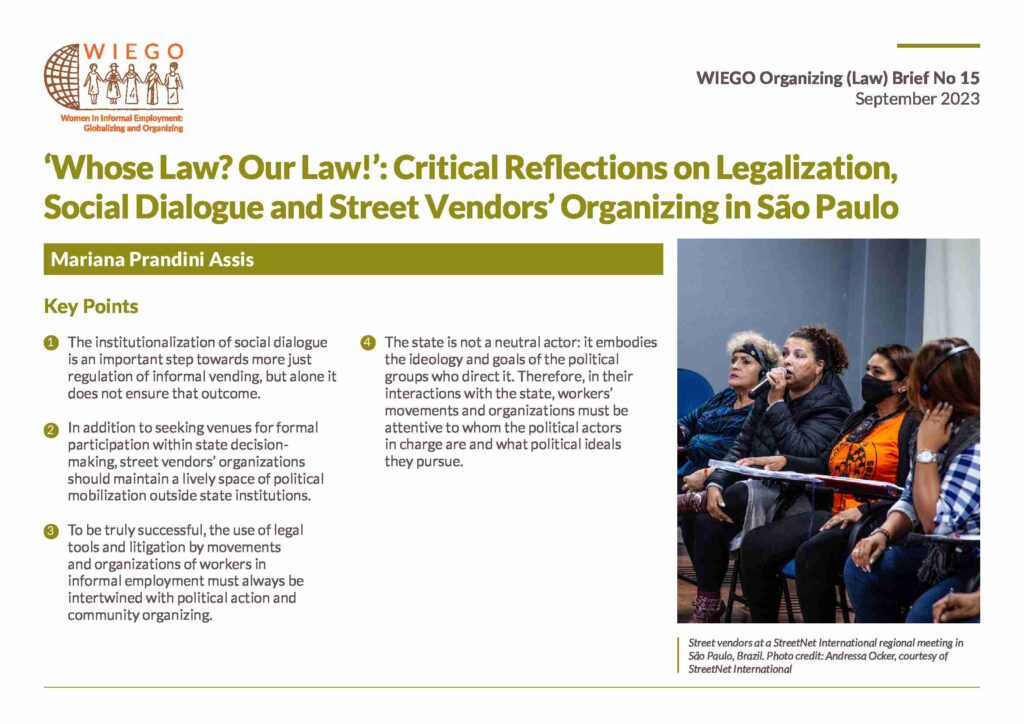 Organizing Briefs
Organizing Briefs
‘Whose Law? Our Law!’: Critical Reflections on Legalization, Social Dialogue and Street Vendors’ Organizing in São Paulo
Key Points The institutionalization of social dialogue is an important step towards more just regulation of informal vending, but alone it...
Read More -
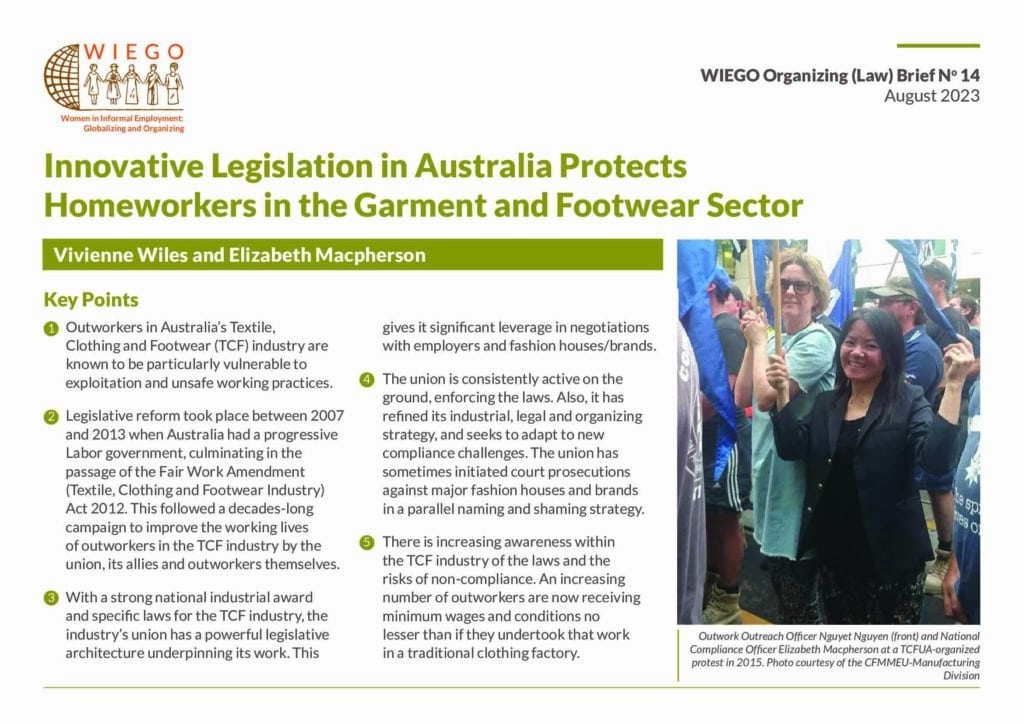 Organizing Briefs
Organizing Briefs
Innovative Legislation in Australia Protects Homeworkers in the Garment and Footwear Sector
Key Points Outworkers in Australia’s Textile, Clothing and Footwear (TCF) industry are known to be particularly vulnerable to exploitation...
Read More -
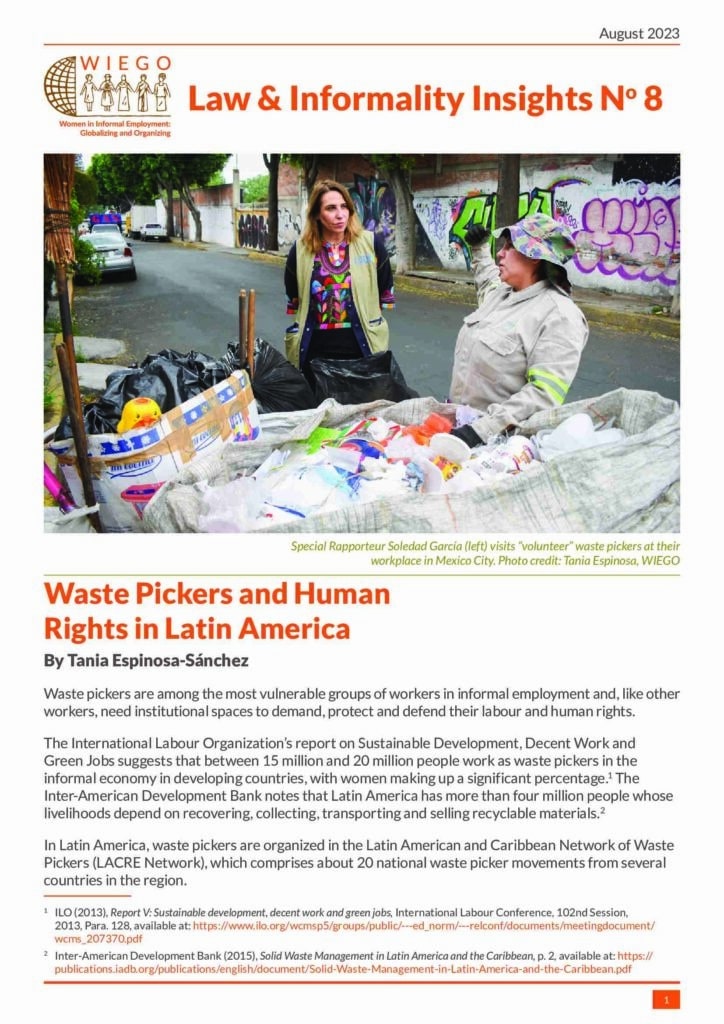 Law & Informality Insights
Law & Informality Insights
Waste Pickers and Human Rights in Latin America
This edition of Law & Informality Insights describes WIEGO’s strategies to articulate the working conditions of waste pickers as human...
Read More -
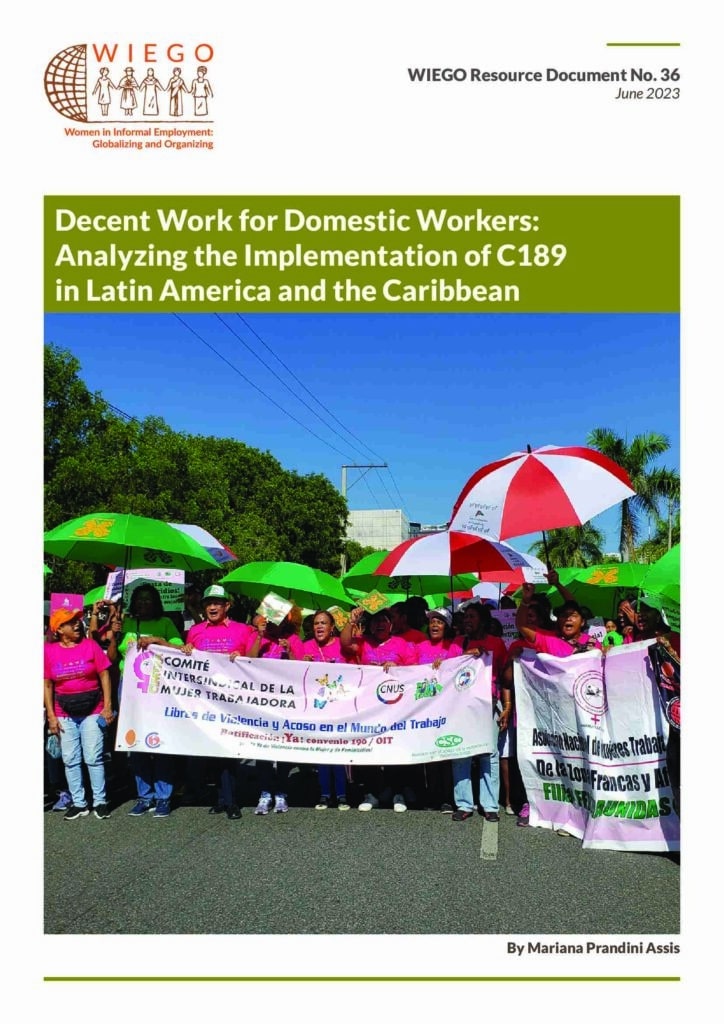 Resource Documents
Resource Documents
Decent Work for Domestic Workers: Analyzing the Implementation of C189 in Latin America and the Caribbean
This Resource Document examines the measures that 17 Latin American and Caribbean countries have taken towards implementing C189: Argentina,...
Read More -
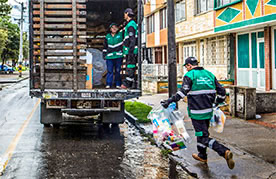 Law & Informality Insights
Law & Informality Insights
Defending Waste Pickers’ Livelihoods: Lessons from Litigation in Latin America
Waste pickers have won several legal actions in Latin America over the past two decades. This edition looks at the lessons learned.
Read More -
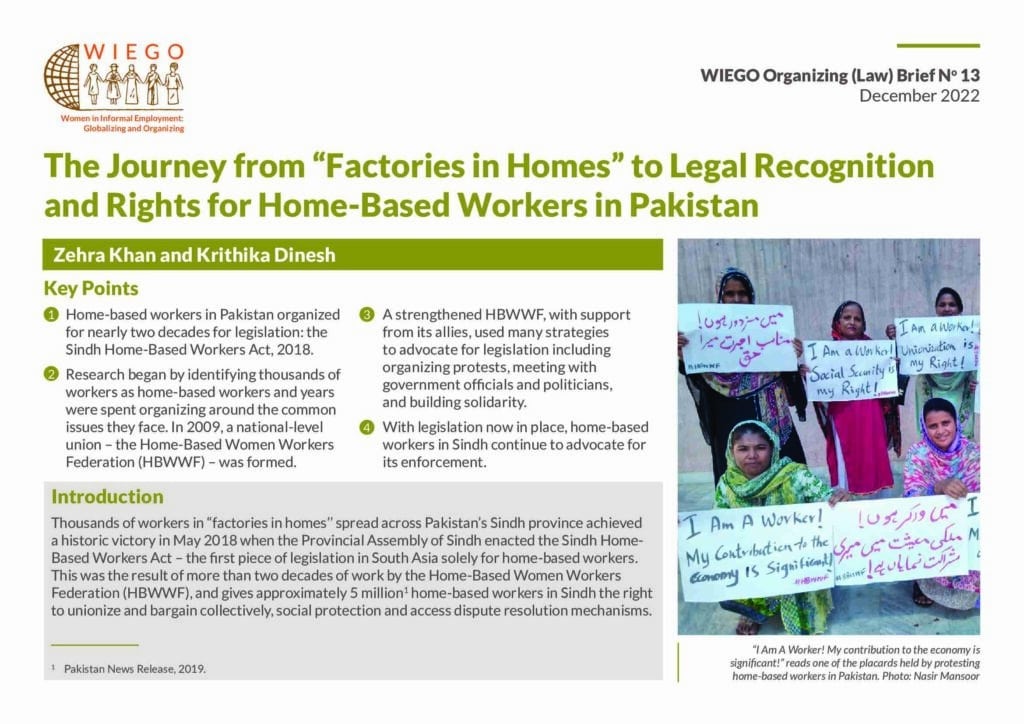 Organizing Briefs
Organizing Briefs
The Journey from “Factories in Homes” to Legal Recognition and Rights for Home-Based Workers in Pakistan
This brief discusses the struggle of home-based workers in Pakistan to realize the rights enshrined in the Sindh Home-Based Workers Act of...
Read More -
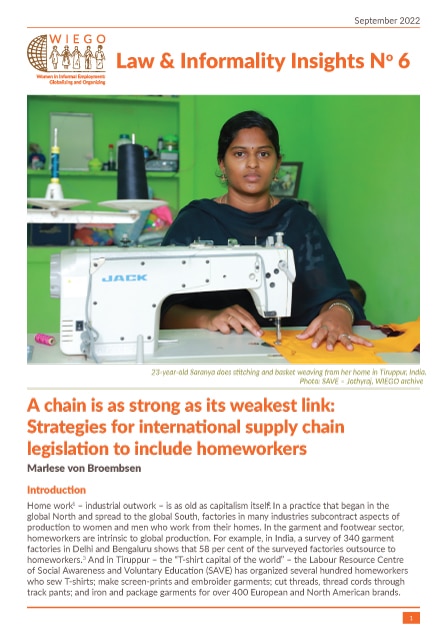 Law & Informality Insights
Law & Informality Insights
A Chain is as Strong as its Weakest Link: Strategies for International Supply Chain Legislation to Include Homeworkers
This publication – A Chain is as Strong as its Weakest Link: Strategies for International Supply Chain Legislation to Include Homeworkers...
Read More -
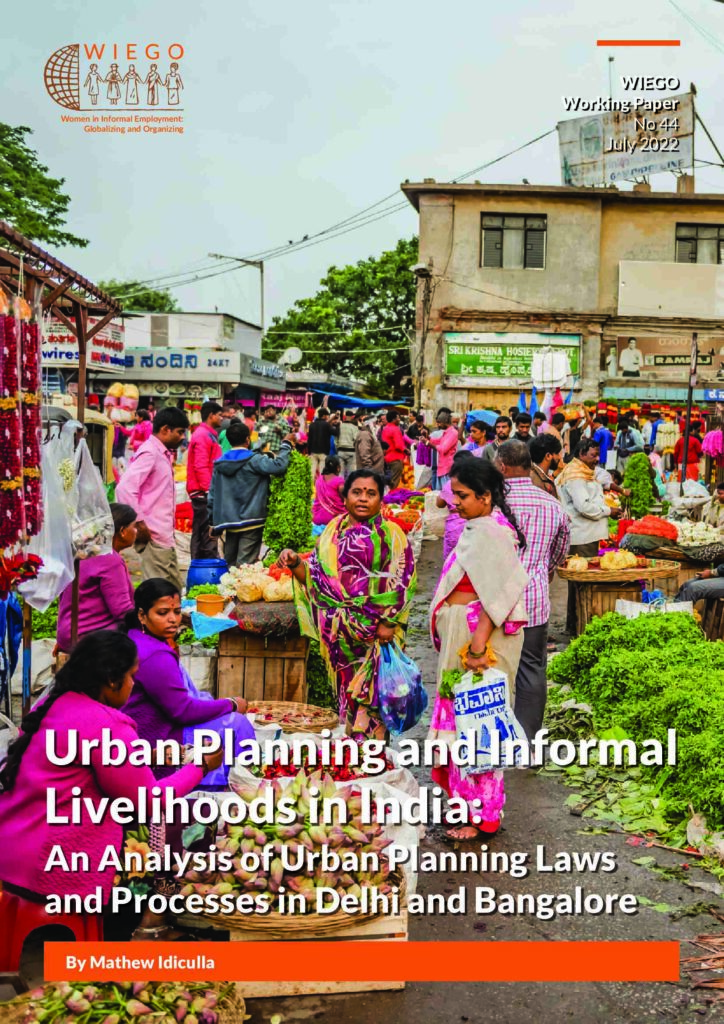 Working Papers
Working Papers
Urban Planning and Informal Livelihoods in India: An Analysis of Urban Planning Laws and Processes in Delhi and Bangalore
This paper seeks to critically analyze the legal framework of urban planning in India and the challenges and opportunities it presents informal...
Read More -
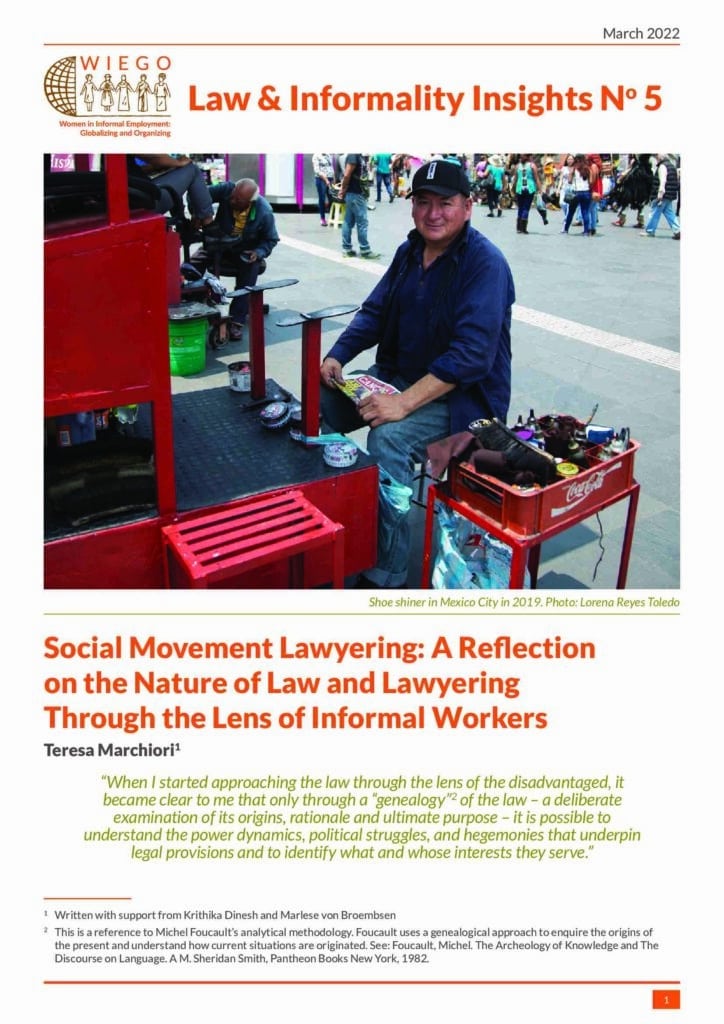 Law & Informality Insights
Law & Informality Insights
Social Movement Lawyering: A Reflection on the Nature of Law and Lawyering Through the Lens of Informal Workers
Applying insights from critical legal studies, this issue of Law and Informality Insights explores how informal workers use the law to resolve...
Read More -
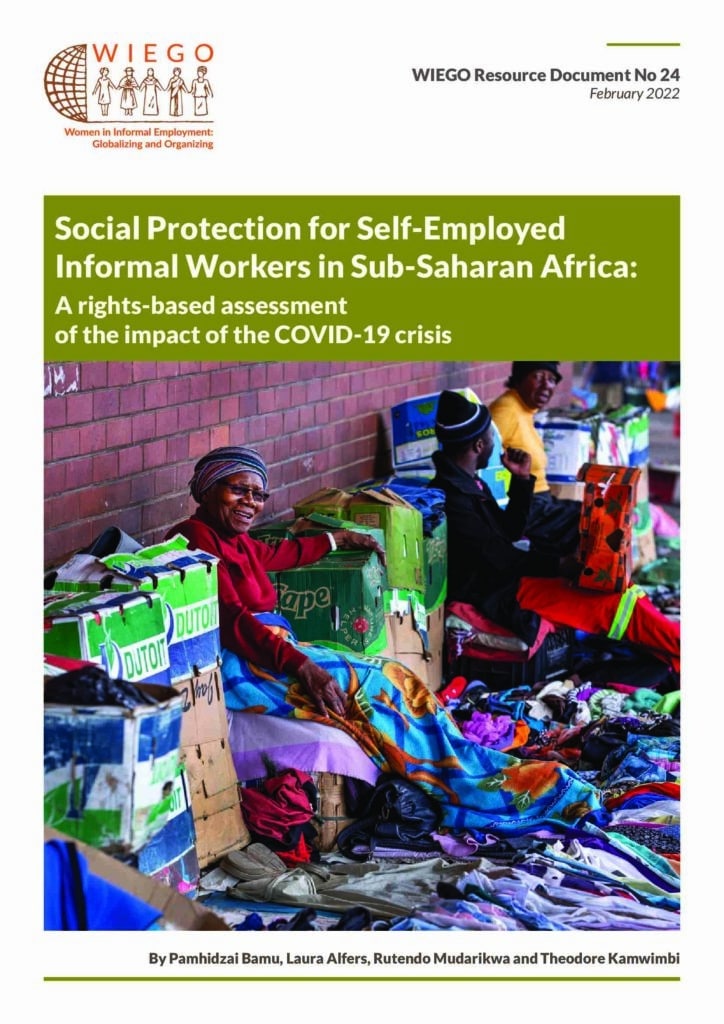 Resource Documents
Resource Documents
Social Protection for Self-Employed Informal Workers in Sub-Saharan Africa: A rights-based assessment of the impact of the COVID-19 crisis
Informal workers make up a large proportion of the “missing middle” in social protection – those who are not considered vulnerable enough...
Read More